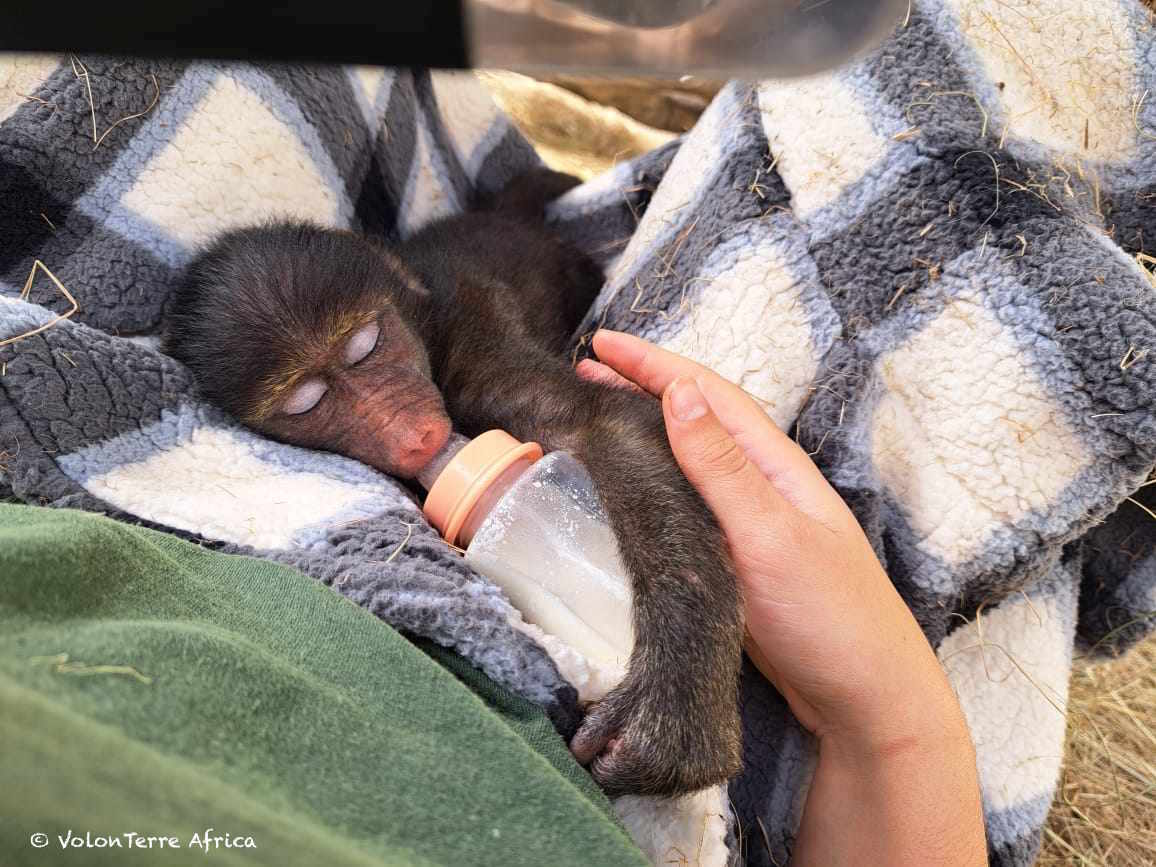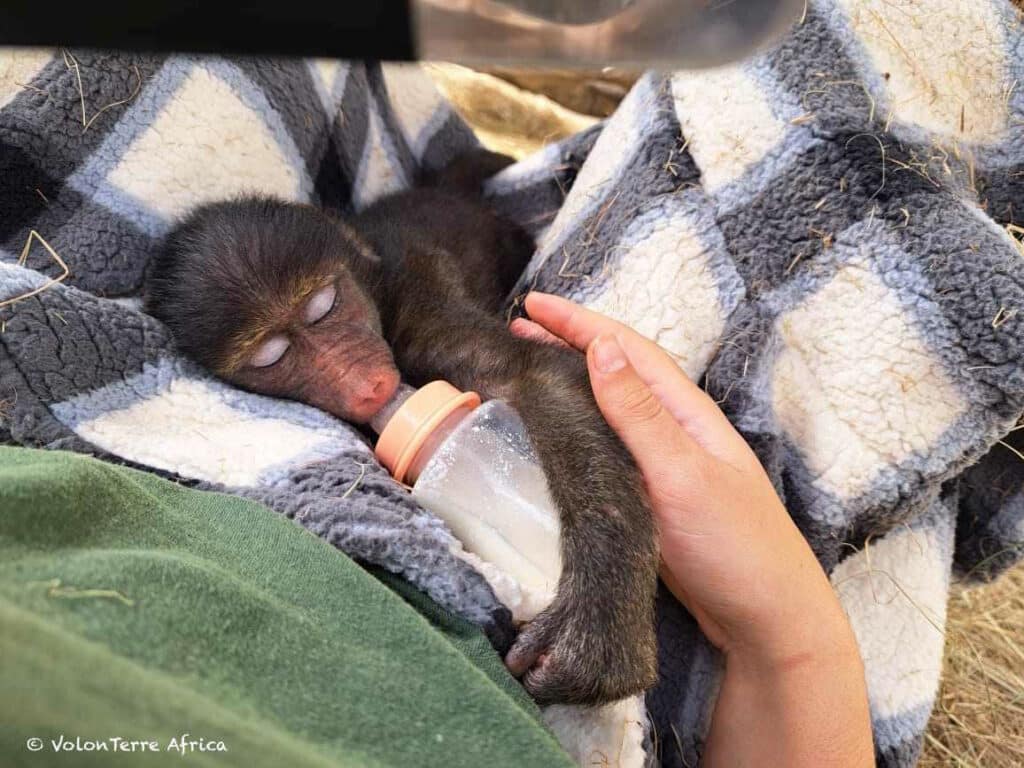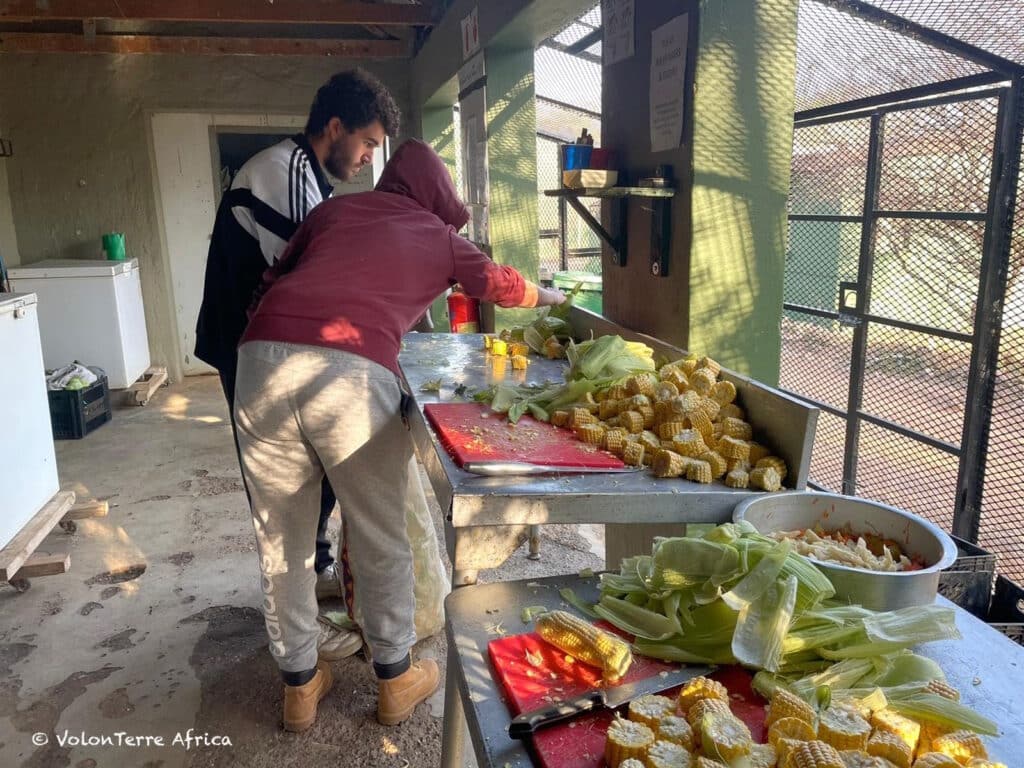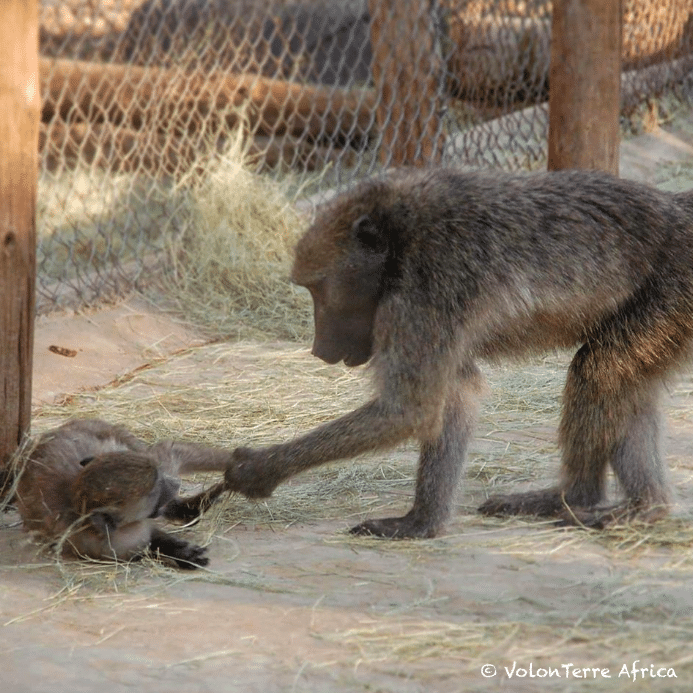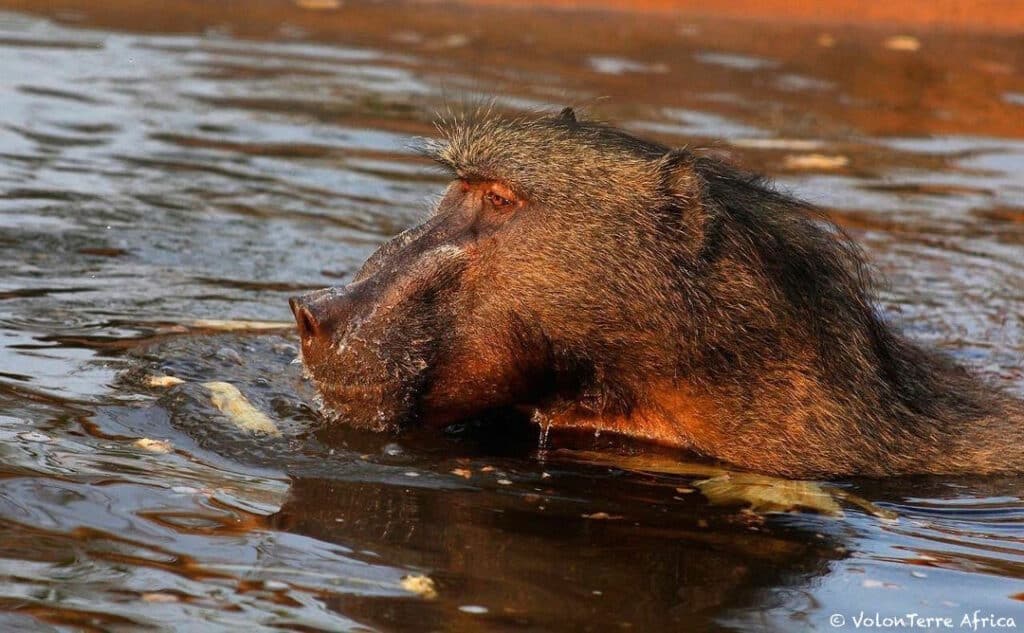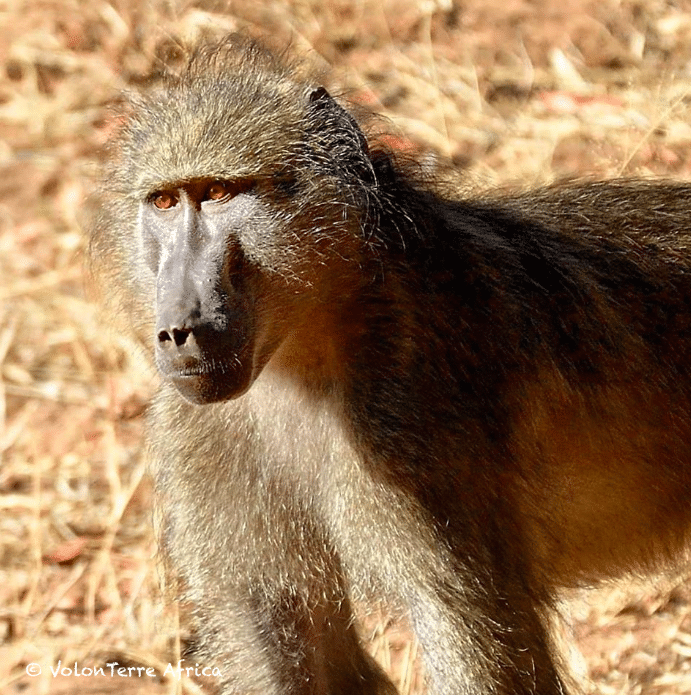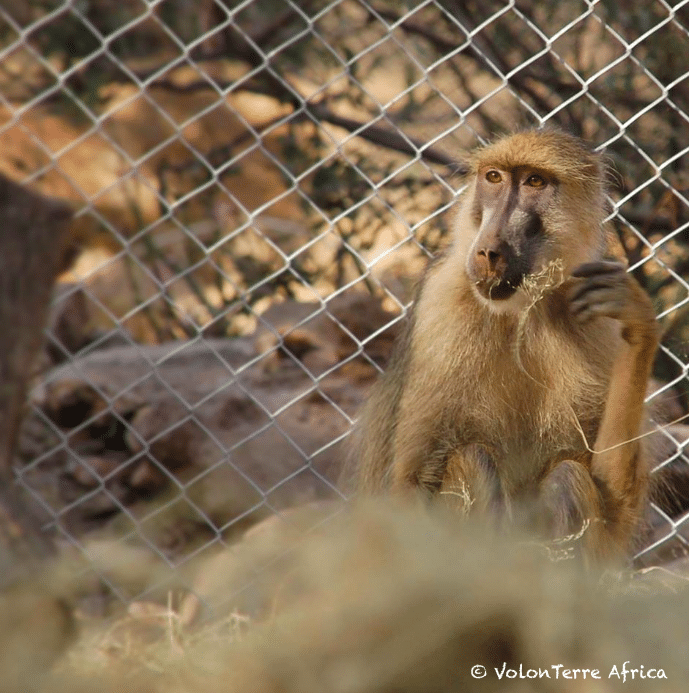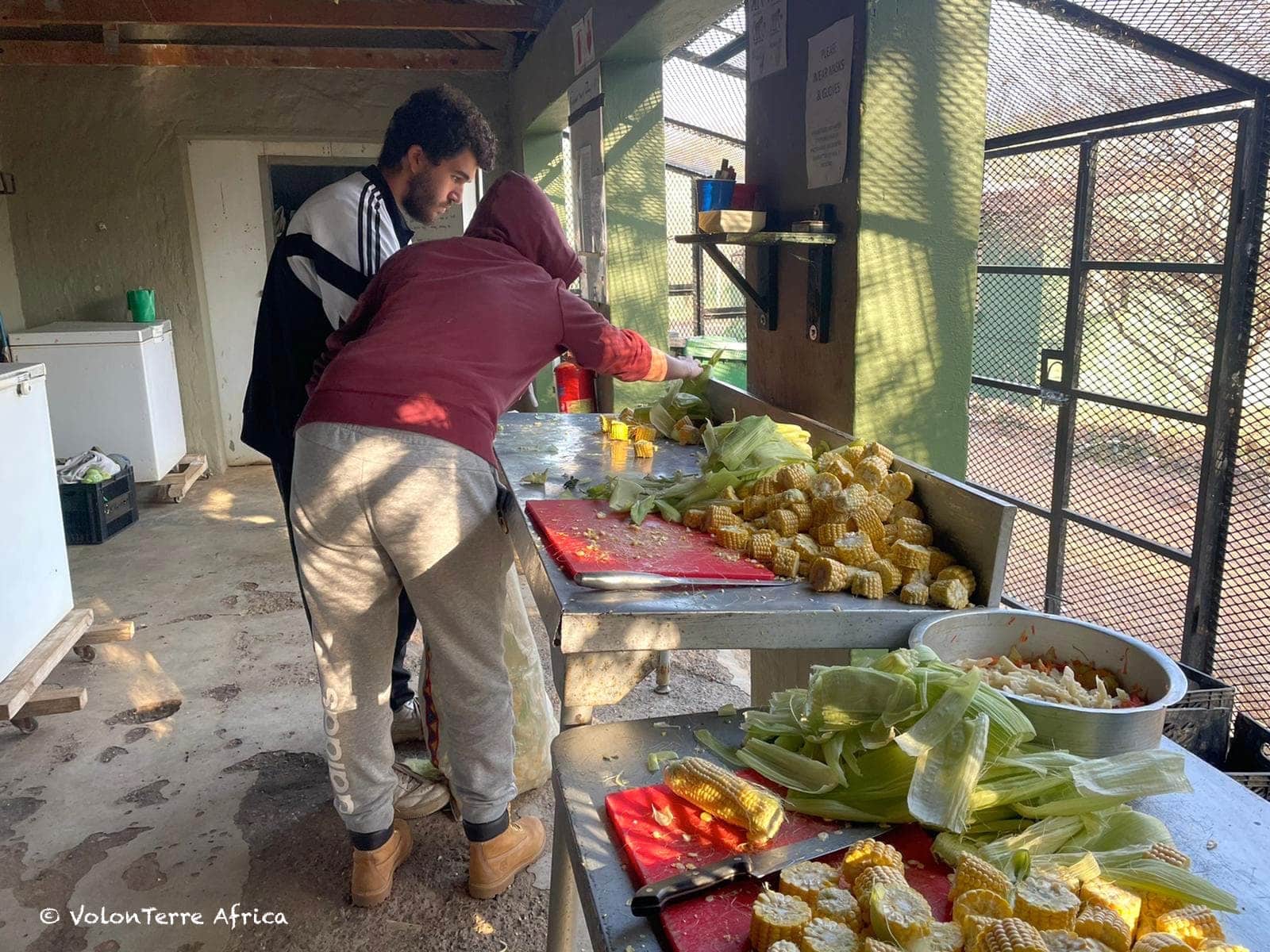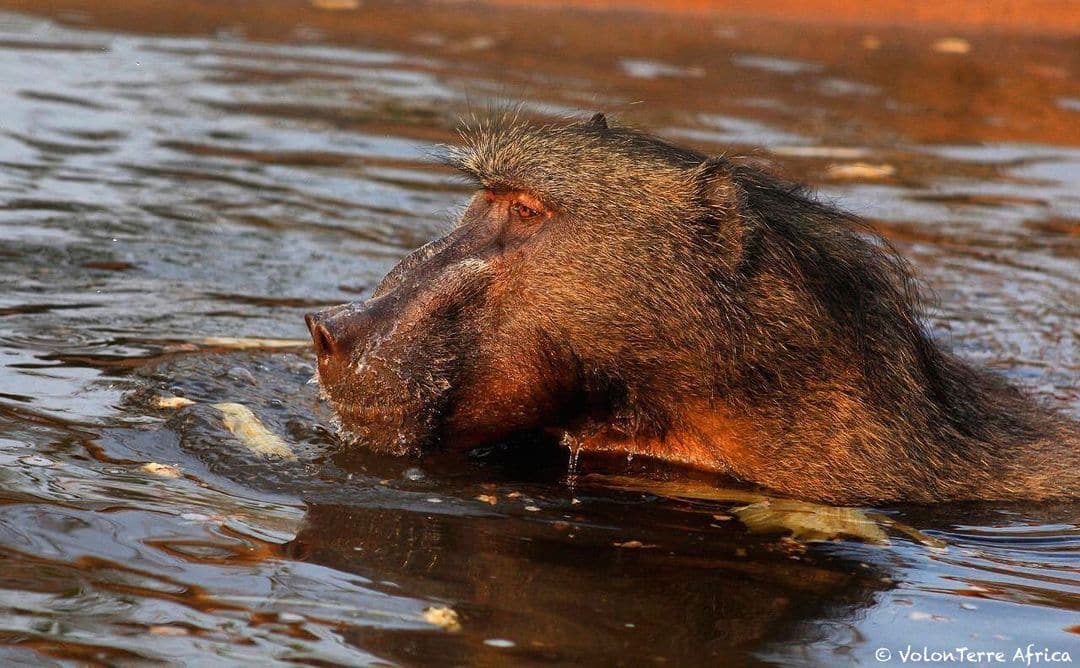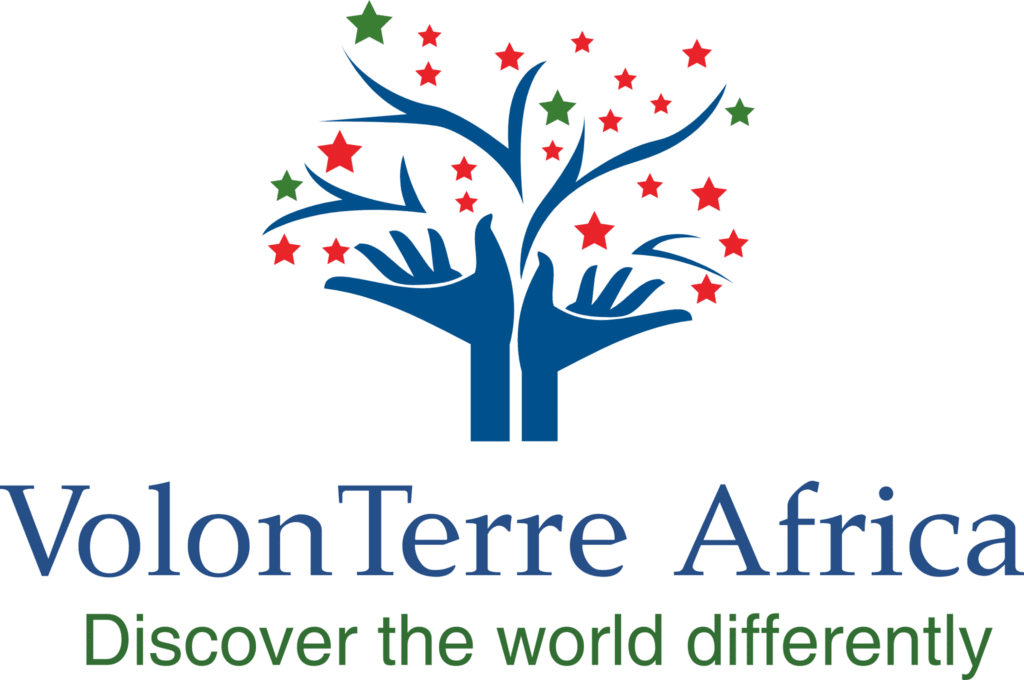Engagez-vous dans un centre de protection des babouins chacma en Afrique du Sud et participez leur réhabilitation. Toutes les missions avec des primates ici.
Le centre accueille 450 babouins
Le projet où vous serez engagé se situe au sein d’une parcelle de 1200 hectares d’une réserve animalière de 40 000 hectares qui accueille les Big Five. Il existe 4 types de primates en Afrique du Sud : le singe vervet, le galago, le samango et le babouin chacma. Le Centre de réhabilitation des babouins accueille à ce jour plus de 450 individus. La plupart sont ont été apportés bébés alors qu’ils étaient orphelins. Avant d’arriver, ils ont souvent été utilisés comme animaux de compagnie. Parfois, leur mère a été tuée à cause des dégâts que les babouins peuvent provoquer dans les fermes et les cultures. Seulement quelques-uns d’entre eux sont arrivés au centre adulte.
Les bébés singes sont pris en charge pour 3 mois
Les babouins qui arrivent bébés sont pris en charge par les volontaires jusque l’âge de 3 mois. En effet, le lien avec la mère est vital pour les bébés babouins. Quand ils arrivent au centre, il ne faut pas couper ce lien. A partir de trois mois, ils sont introduits auprès d’une mère babouin de substitution avant de rejoindre, étape par étape, une troupe plus large. A ce jour, le centre a réussi à recréer 28 troupes de babouins, formant un total de 450 individus.
15 troupes de babouins réhabilités en 30 ans
La réhabilitation est un très long processus. Chaque individu arrive séparément et, comme les troupes de babouins ont un système hiérarchique très structuré, la sociabilisation chez ces primates est primordiale. Les étapes ne doivent donc pas être brûlées afin d’avoir une réhabilitation réussie. En 30 ans, le centre a réhabilité 15 troupes de babouins, soit environ 350 individus. 99% des animaux du centre sont des babouins chacma. Pour autant, il y aussi d’autres petits animaux qui sont récupérés comme des petits mammifères, des oiseaux, voire certains animaux domestiques (chiens, lapins, chats, cochons d’Inde).
Le rôle des volontaires au centre des babouins
Certaines activités sont quotidiennes, comme la préparation des repas pour les animaux. D’autres dépendent des besoins du moment au centre. Les tâches qui vous seront confiées sont très variées. Vous ne serez pas toujours en contact avec des babouins.
Voici quelques exemples d’activités au sein du projet
- Nurserie avec les bébés (jusque 3 mois)
- Préparation et distribution des repas
- Nettoyage des enclos et de la nurserie
- Aménagement / réparations des enclos
- Mise en place d’ « enrichement », qui sont des astuces permettant aux singes de développer leur instincts pour chercher leur nourriture
- Observation et collecte de données sur leur comportement et interaction
- Supervision de l’introduction des bébés avec leur mère de substitution
- Collecte de branches, herbe, graines et autre nourriture naturel des babouins
- Arrachage de plantes non indigènes, nocives pour la réserve
- Participation à l’éducation de la population locale (et en particulier des enfants) sur la protection des babouins
La durée minimum de participation à ce projet est de 2 semaines au minimum et de 12 semaines au maximum. Possibilité d’arrivée le 1er et 3ème lundi de chaque mois (sauf exception), à la ville d’Hoedspruit
- Toute l’année
- 2 semaines: 900 €
- 3 semaines: 1120 €
- 4 semaines: 1360 €
- 6 semaines: 1950 €
- 8 semaines: 2370 €
- 12 semaines: 3140 €
Est inclu dans le tarif
- Le transfert aller/retour depuis la ville d’Hoedspruit
- L’hébergement & linge de maison
- Trois repas par jour (principalement vegan)
- La blanchisserie
- Une journée par semaine dans la ville la plus proche
- L’encadrement technique
N’est pas inclu dans le tarif
- Le vol international et le transfert Johannesburg à Hoedspruit
- Les boissons supplémentaires et dépenses personnelles
- Les assurances assistance – rapatriement – frais médicaux – annulation – bagages
- Accès Internet (wifi disponible en supplément)
Conditions de participation
- Aucune expérience spécifique n’est demandée pour participer si ce n’est une véritable motivation pour l’ADN du projet
- 18 ans minimum, ou à partir de 16 ans si accompagné d’une personne majeure
- Langue : Anglais
Logement et nourriture
- Le campement des volontaires se trouve au sein du projet.
- C’est un campement en dur, qui propose 6 chambres de chacune 2 à 4 personnes en fonction des périodes.
- Il y a un bâtiment commun pour les toilettes et les douches, et une petite cuisine pour préparer son café ou des repas basiques (les 3 repas vegan par jour étant pris dans le patio du centre)
- Le campement des volontaires dispose aussi d’une salle commune de détente, avec des jeux, une télé, un lecteur DVD, etc. pour bien se détendre après une journée de travail.
- Ce projet est majoritairement vegan.
Un projet qui existe depuis plus de 30 ans, qui a déjà fait ses preuves et qui vous permettra d’être un élément clef du processus de réhabilitation des babouins dans leur milieu naturel…
Tous les avis sur les missions de VolonTerre Africa
A propos de L’agence partenaire
VolonTerre Africa a été créé par Nathalie, une française qui a monté son agence en 2015, après une expérience de volontariat de plusieurs années dans une association en Afrique du Sud. Elle propose plusieurs missions d’éco-volontariat pour la préservation d’espèces en danger, ainsi que pour le soutien à des communautés rurales. L’agence partenaire est spécialisée dans les missions en Afrique du Sud. Toutes les missions avec VolonTerre Africa

